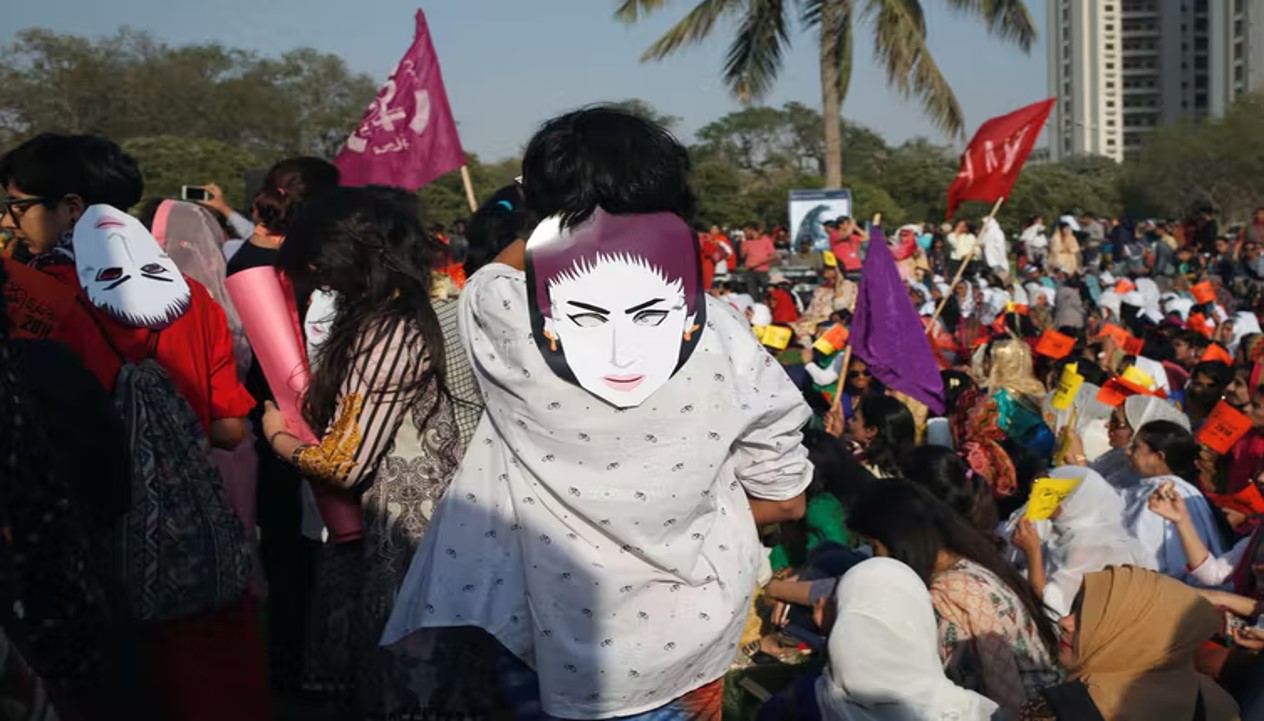The prevalence of so-called “honour” killings in Pakistan has increasingly been the subject of national debate. The perpetrators are husbands, fathers, sons, brothers, uncles, cousins, and in some cases, strangers hired by the victims’ families. And the reasons they give for their crimes include the women or girls having sexual relationships (actual or alleged), having a boyfriend, marrying without family consent, failing to prove virginity on their wedding night, being a victim of rape, leaving an abusive husband, using a mobile phone or posting a picture on Facebook.
After social media star Qandeel Baloch was murdered by her brother, Waseem Khan, in July 2016, a landmark piece of legislation was passed. The 2016 Criminal Law (Amendment) (Offences in the name or pretext of Honour) Act was widely opposed by the country’s influential clerics for being “anti-Islamic”. The bill was nonetheless welcomed by the public and considered a step in the right direction.
In February 2022, however, a mere three years after Khan was convicted, the high court of Pakistan ordered his acquittal. This has shocked the activists and public figures who have campaigned for justice for Baloch and marks a significant step backwards.
As my research shows, violence against women and girls, including murders in the name of honour, continues to be a problem. And the new 2016 law appears to have had little effect: ineffective implementation of that legislation and the resulting flawed trials have created a culture of impunity.
Flawed trials
The 2016 amendment mandates life imprisonment for those who kill women in the name of “honour”. It states that even if the victim’s parents pardon the killer, the murderer has to go to prison for 12 years. As Khan’s case demonstrates, however, there are loopholes that can be exploited.
Baloch was drugged and strangled to death at her family home in Multan in July 2016. Khan publicly confessed to the murder, citing the videos and photographs she had posted on social media as having brought dishonour to their family, and was subsequently sentenced to life imprisonment.
However, his lawyers used what is known as the Qisas and Diyat law to circumvent the new legislation. This legal mechanism allows victims’ families to voluntarily pardon or accept financial compensation from the perpetrators, which translates into a judicial acquittal.
Previous cases have had similarly concerning outcomes. On February 15, 2019 Sana Cheema’s father, brother and uncle were acquitted by a Pakistani court. A district court judge acquitted the accused by declaring that there was a lack of “certain evidence”. Cheema, an Italian citizen, died in 2018 while visiting her family. It was reported in the Pakistani media that the police had alleged that the suspects had confessed to, and then retracted, an honour killing.
My analysis of the reports published by the Human Rights Commission of Pakistan shows that, between 2004 and 2016, 15,222 honour killings – 1,170 every year; 22 per week – were recorded. More recent statistics show that the problem persists. In 2021, 128 women were killed in Sindh province, in the name of honour. And in Punjab province, between July and December 2021, 90 women were killed, 2,439 were raped and 9,529 women were kidnapped.
Nationwide, the numbers are likely much higher. Research shows that honour killings are primarily perpetrated by family members and that as a result, people do not come forward to report incidents. Such disputes are instead settled outside of the court system. Further, in some segments of society there is a level of support for the perpetrators: the criminality of these murders is not recognised within the social and cultural contexts in which they occur.
Leadership failures
In a 2020 interview, prime minister Imran Khan criticised the fact that Pakistanis are increasingly adopting what he called the “immoral mannerisms” of the west, saying that they are “chipping away at our traditional familial values and norms”. He has been preaching that Pakistan’s strength is its moral family system, which western values, promoted through Hollywood films, have negatively influenced. He pointed to rising divorce rates in Pakistan, which he said were following trends noted abroad, as an example of this negative influence.

Research however shows that in Pakistan, the home is in fact a dangerous place for women. About 27% of women over the age of 15 report having experienced physical abuse inside their homes. Sexual violence, in particular, against women and girls continues to be a problem.
Despite this evidence, Khan blames the victims. In a 2021 interview, he said, “Men are not robots, ladies wearing small clothes impact them,” thereby subscribing to a view long refuted by a significant body of research that shows that sexual violence is a consequence of perpetrators dehumanising female bodies.
To address violence against women and girls, in the name of honour or otherwise, we need stricter laws, thorough police training and better support structures for survivors of domestic abuse. But that will not be enough to stop it.
In the same way that the Hindu practice of sati (conjugal self-immolation) in India and foot binding in China were outlawed through local movements, Pakistani society needs to change from within to alter the social structures and narratives that enable honour killings. The councils – village, tribal, and elders – that condone these crimes and settle the disputes that trigger them must be dismantled. Crucially, leadership at a national level is vital. Public figures who wield the kind of influence Khan does are able to make a massive difference by promoting women’s rights, if they choose to do so.
Courtesy: Sadiq Bhanbhro

